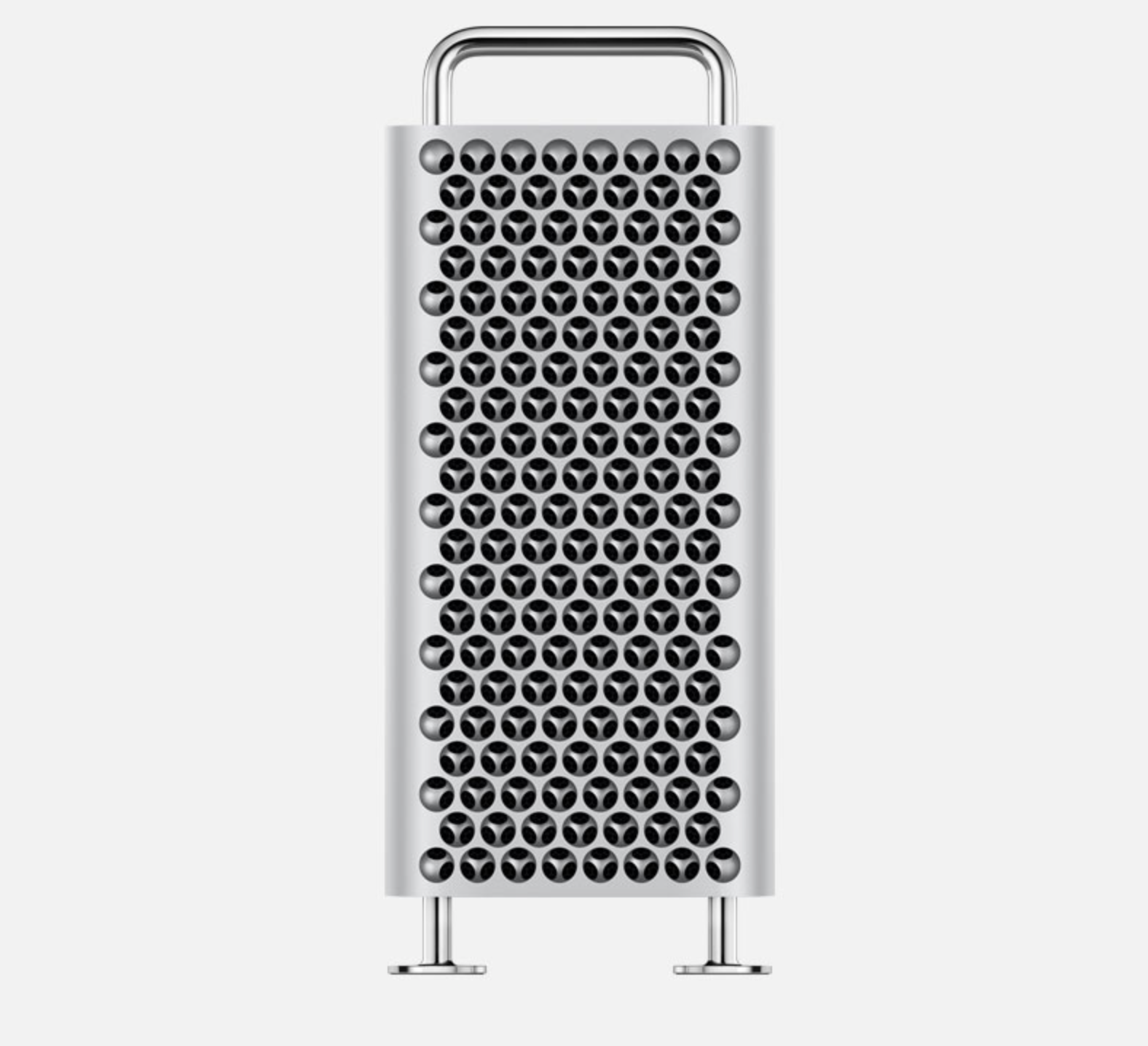Apple Announces the Upgradable Mac Pro Everyone Has Desperately Wanted for Years
Credit to Author: Jason Koebler| Date: Mon, 03 Jun 2019 19:46:52 +0000
For the first time in seven years, Apple has announced a computer. An honest-to-goodness computer—a big, ugly, powerful tower, with lots of ports, lots of empty slots, and wheels, if you need them for some reason. It’s the kind of computer that you’ll probably want to hide under a desk. The kind of computer that, for some people, will require a home equity loan in order to buy. Apple fans couldn’t be more thrilled.
For years, the “pro” community—graphic designers, virtual reality video editors, 3D computer graphics modelers, programmers, videographers, artists, music producers—have been furious at Apple for releasing a series of computers that seem to compromise performance for design. First, it was the “trash can” Mac Pro, a 2013 cylindrical redesign of Apple’s top-end computer that is largely unupgradable, widely reviled, and has been essentially ignored by Apple since its release. Then, it was the refresh of the MacBook Pro, which did away with most ports, is underpowered relative to its PC competitors, and, worse of all, has a fatally flawed keyboard.
There is an entire generation of creative types who came up on MacOS and fell in love with the “cheese grater” Mac Pro—released in 2006 and updated every few years until 2012—which was powerful and highly modular. But then, the 2013 second generation trash can came around. And with it, the death of modularity and upgradeability. Between 2013 and now, we’ve had the mainstreaming of virtual reality development, a generational leap in computer animation and machine learning tasks, and, if you needed to work in MacOS … the same old trash can computer.

Creatives who wanted to install top-of-the-line graphics cards were forced to deal with a bunch of adapters and external power supplies or switch to Windows. Lots of others opted for a third option: There’s an entire community of people who continue to use the old, cheese grater Mac Pros from a decade ago, modified to use new graphics cards, stacked with comically high amounts of RAM, and huge SSDs. The whole thing is absurd, considering they’re all running on processors that are wildly out of date.
“It feels completely ridiculous to be doing this. You cannot go to Apple.com and find a computer better than these,” Gianluca Mazzarolo, founder of Big Little Frank, a Denmark-based company that retrofits old Mac Pros told Motherboard last year. “I think a lot of people in this group see upgrading the Mac Pro as a cheaper way to get a functional Mac. But I don’t think the point is really the essence. The essence is people wanted more powerful Macs and Apple didn’t give it to them, so we are.”
And so Monday, at long last, Apple gave these people what they wanted: A new Mac Pro that looks like the old Mac Pro everyone loved. A computer starting at $6,000 with a $5,000, a $1,000 stand, and a $200 VESA mount, a small piece of metal and four screws that can mount the monitor to other monitor arms.
Apple didn’t have to reinvent or redesign computers, it just had to give people a sandbox to play with: Mazzarolo said the community has been using the “skeleton” of old Mac Pros to build powerful, customizable computers. Apple just gave the community a new skeleton to build off of.
The new Mac Pro is a computer that isn’t designed to be the thinnest, slickest, lightest thing out there. It’s got a comically powerful power supply and a zillion ports and PCI slots. It’s not immediately underpowered compared to lower-end PCs, and it will be upgradeable for years to come. It’s a computer that trusts its user to turn it into whatever they need to use it for, and it’s the computer Apple should have made a long time ago.
It’s basically a huge rectangle with powerful parts and lots of ports, and it’s not really “innovative” in the way that Apple wants all of its products to be, it’s just a powerful starting point for people who need a powerful computer. And really, that’s all people have wanted for years.
This article originally appeared on VICE US.